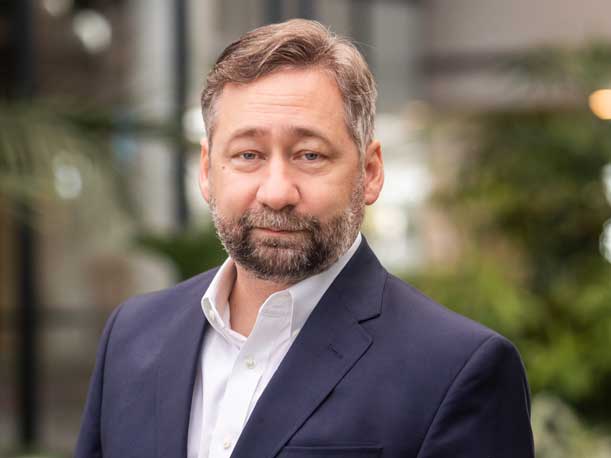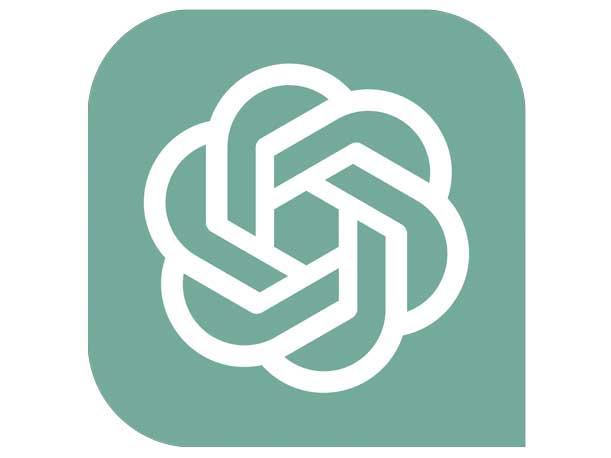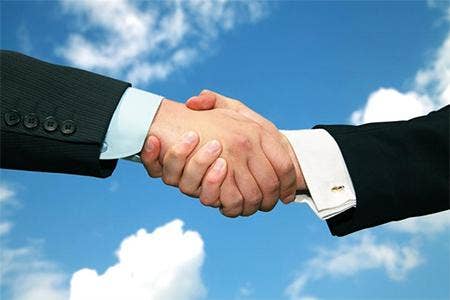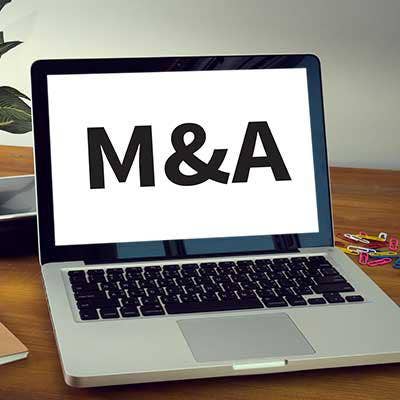ConnectWise CEO Jason Magee On AI, M&A, New Vendor Partnerships
‘Whether it’s ChatGPT or Google Bard, it’ll make people a lot more productive and efficient. I don’t think it’ll replace, but I think it’ll make people able to do more. You’ll be able to get something 60 percent along its way and then fine-tune, modify, enhance it and make it that much better,’ says ConnectWise CEO Jason Magee.

ConnectWise CEO Jason Magee sees a huge opportunity when it comes to using AI in business, but he understands there will be risks.
At ConnectWise’s IT Nation Secure conference in Orlando, Fla., this week, the company unveiled its AI Responsibility Use Statement and AI Oversight Committee, which Magee called a “guiding principle” to assure partners that the Tampa, Fla-based vendor is using AI responsibly.
The AI Responsibility Use Statement outlines ConnectWise’s commitment to data protection, transparency, reliability and safety, collaboration and compliance.
“[It was] to get out in front of it and say, ‘As we’re looking at AI and incorporating that into our company, our products, the platform and things we bring into the market, we’re going to have the five key areas in the Responsible Use Statement.’ Call it a guiding principle of sorts, it’s checks and balances to ensure that we’re putting it to the best use possible,” Magee told CRN.
In an exclusive interview with CRN, Magee discussed a whole host of topics such as AI, M&A, the ConnectWise marketplace and whether or not the company is up for sale.
“Long story short, day one when TB [Thoma Bravo] acquired us we were for sale,” he said. “Every PE [private equity] company is in the business of buying, but more importantly, selling companies. So it’s not a matter of if, it’s when.”
There has been speculation for months about a possible acquisition of the vendor, which was acquired by Thoma Bravo in 2019, with sources close to the deal saying the bidding war had been heating up and that ConnectWise was mulling bids from private equity players.
“I meet with bankers and talk with people on a monthly basis,” he said. “You’ve got to always have the relationships and establish relationships. So when that time comes, they already know who we are, what we’re about and they know about our business and whatnot.”
Here is more of what Magee said in his interview with CRN.

Why is creating an AI Responsibility Use Statement and an AI Oversight Committee important?
To give some context, this is going to be a little bit of a journey. We try to be on the forefront of things. This community, the partners, get pretty passionate. I’ll use that word, ‘passionate.’ It’s a passionate community and they’re very passionate about certain things. We’ve heard loud and clear from the community that there were certain things that are important to them whether it’s AI, data, security and things like that. So we thought it was important because of the tremendous opportunity but also the concern around AI. [It was] to get out in front of it and say, ‘As we’re looking at AI and incorporating that into our company, our products, the platform and things we bring into the market, we’re going to have the five key areas in the Responsible Use Statement.’ Call it a guiding principle of sorts, it’s checks and balances to ensure that we’re putting it to the best use possible. We have people that are saying, ‘Is that good? Will that help capitalize on opportunity? Is there a risk and concern there?’ It’s a huge opportunity, but done incorrectly it could do harm. We just want to make sure that we have this committee making sure we’re doing the right things.
Why should partners care that ConnectWise is putting out this statement and that there’s now an Oversight Committee?
Simply said, we’re putting a thoughtful approach around it. They should understand the importance of what we’re doing and how it will benefit them, not only to capitalize on the opportunity but to help prevent them from any potential misuse or risk.

What are your thoughts on ChatGPT in terms of how businesses can use it?
Huge opportunity. I used the term ‘superhuman’ in the keynote, and that’s the power of it. Whether it’s ChatGPT or Google Bard, it’ll make people a lot more productive and efficient. I don’t think it’ll replace, but I think it’ll make people able to do more. You’ll be able to get something 60 percent along its way and then fine-tune, modify, enhance it and make it that much better. I think for uses like that there is tremendous opportunity. I think it’s a tremendous opportunity for companies like ConnectWise to become more productive and efficient in certain areas.
Are you afraid it’s going to get too big and it’s going to be hard to almost hone in and train?
I don’t think I’ve thought about that. I’d have to think about that a little bit.
Where do you see using AI in the ConnectWise platform down the road?
It’s endless, there’s so much opportunity. We rolled out the script generator, that was two months ago. It’s in proof of concept and we’ll be launching later this year other things that will make it easier for techs to see what’s actually going on with the customer and the ticket, being able to summarize things. So it’s kind of more front and center. [With] customer sentiment, as they’re interacting they’ll be able to pick up on things and so on.
There’s so much we could do because our platform, the amount of data, the amount of interactions that MSPs have with our customers, we could help with productivity in so many areas.

Three partnerships were announced during the show: Proofpoint, Axcient and Auvik. Why are these partnerships good for your partners?
I’m going to answer it a slightly different way. It’s all about the ecosystem. We have well over 300 vendor partners within our ecosystem. These are three that have been in the ecosystem that we’re becoming more tightly integrated with. [It’s] allowing the MSPs that are using our platforms with those tools to get more value, making them more intuitive between our product sets. [It’s] making the MSP more productive, more efficient [through] a single pane of glass. And for us, it helps us fill in gaps.
When it comes to the ConnectWise ecosystem, are you trying to grow it into a larger marketplace through partnerships or through acquisitions?
We’re not going to go acquire everyone. There are certain things that we do and feel that we do best and should own, those are the things that we’ll focus on from a M&A standpoint. Then there are lots of things that don’t fall into that realm and that’s where the whole ecosystem, the marketplace … the vendors in a solutions pavilion, come into play. It’s less and less about being a distributor and more about how are we integrating and making it easier for our [partners] to get access, learn and see the robust vendor ecosystems that are integrated into our platforms that make their lives easier every day. It’s less about the M&A because there’s certain things that we’ll do and we want to own. We know those gaps, we’ll go either build or go and acquire those companies.

Do you see any acquisitions on the horizon this year?
We’re always looking, and it’s competitive. We have discussions all the time. And I’m not saying that it’s not the best of times, it’s just [with] market conditions you want to sell on the right conditions with certain things. I would say with the earlier stage companies, it’s a little bit of a different dynamic when it comes to the market conditions. ... We’re having discussions all the time to fill those gaps when we feel our best route is through acquisition.
Give me a sense of a two-year road map for cybersecurity. Where do you see ConnectWise in regard to security offerings in 2025?
More more will be integrated and on the Asio platform. The areas that we have today, MDR, SIEM and vulnerability management, will continue to progress further in their road map, solving the pain points, challenges and helping MSPs protect them and their customers. That’s going to be a bulk of what you see and then you’ll see the convergence of those platforms.